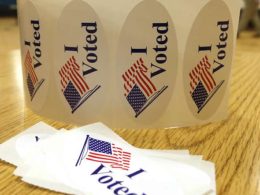On Wednesday, the FDA approved Covid-19 boosters for Moderna and Johnson and Johnson vaccines. They also approved using a “mix and match” approach to the vaccines. This means that you can receive a Pfizer booster even if you received the Moderna vaccine.
A released FDA statement said:
“A single booster dose of any of the available COVID-19 vaccines may be administered as a heterologous booster dose following completion of primary vaccination with a different available COVID-19 vaccine.”
According to FDA Commissioner Janet Woodcock, “The availability of these authorized boosters is important for continued protection against COVID-19 disease.”
People that are considered “high risk” are eligible to receive a booster at least six months after their original vaccination. The FDA classifies “high risk” as those over age 65, people living in long-term care facilities, and individuals 18-64 years old that are at high risk for severe illness from Covid or who have an increased risk of being exposed at work.
Pfizer’s booster shots were approved back in September for some high-risk individuals.
The Pfizer booster has now been expanded to include adults who got the one-shot Johnson & Johnson vaccine. Studies have shown that the Johnson & Johnson vaccine is less effective than Pfizer and Moderna. The Moderna booster is 50 micrograms, compared to the 100 microgram amount in each of the first two doses. Adults who received the Johnson & Johnson vaccine can receive the Pfizer, Moderna, or Johnson & Johnson booster two months after their initial vaccination.
Not all of the FDA’s advisory board committee members were eager to vote for the Moderna booster shot, even though approval was unanimous.
Dr. Rubin said:
“The data are not perfect but these are extraordinary times and we have to work with imperfect data.”
After the vote, members were asked to consider if they’d recommend boosters to younger age groups.
Dr. Paul Offit, director of the Vaccine Education Center and a pediatrics professor at Children’s Hospital of Philadelphia, said, “I don’t agree with doing this down to 18 years of age at all.” He added, “I am uncomfortable with how we just sort of tripped down the line here with the concept of a universal booster dose.”
The FDA did not recommend one booster over the others. In regards to the boosters, Woodcock said, “We do not have preferential recommendations. We feel that if patients have questions, they should consult with perhaps their physician or another provider.”
- Gender Clinic in UK Faces Class Action Lawsuit - August 12, 2022
- North Dakota School Board Will No Longer Say Pledge of Allegiance - August 12, 2022
- New Dating App Will Cater to Conservatives - August 11, 2022










